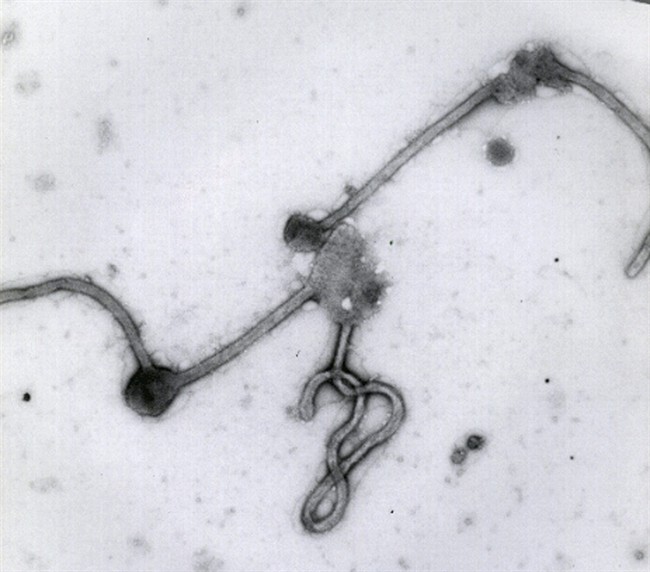FREETOWN, Sierra Leone – Sierra Leone voted to pass a new amendment to its health act, imposing possible jail time for anyone caught hiding an Ebola patient, a practice the World Health Organization believes has contributed to a major underestimation of the current outbreak.

The new law, an update to the country’s 1960 Public Health Act, was passed on Friday and imposes prison terms of up to two years for violators, said lawmaker Ansumana Jaiah Kaikai.
The measure was necessary to compel residents to co-operate with government officials, Kaikai said, noting that some residents had resisted steps to combat Ebola including the construction of isolation centres in their communities.
READ MORE: Liberia, Sierra Leone race to enforce Ebola quarantine
“This amendment seeks to address these emerging bottlenecks,” he added. The amendment now goes for presidential assent.
The country’s health ministry warned back in June that it was a serious crime to shelter someone infected with Ebola.

Get weekly health news
Sierra Leone has been hit hard by the current outbreak, recording at least 910 cases and 392 deaths, according to figures released Friday by the World Health Organization.
A total of 2,615 infections and 1,427 deaths have been recorded across West Africa.
These numbers don’t capture all cases in part because families hide patients, fearing high fatality rates and the stigma that comes with a positive diagnosis, the U.N. health agency said in a situation assessment released Friday.
New treatment centres in Liberia are being overwhelmed by patients that were not previously identified, suggesting an “invisible caseload” of patients that is going undetected, the WHO said.
READ MORE: CDC director to visit Ebola outbreak countries
Countries in the region and elsewhere in Africa have continued to impose travel restrictions, even though this hasn’t been recommended by the WHO.
Ivory Coast announced late Friday it was closing land borders with neighbouring Guinea and Liberia. Gabon, Senegal, South Africa and Cameroon had all earlier in the week imposed restrictions on some or all of the four countries with confirmed Ebola cases.
On Saturday, the Philippine government said it was recalling 115 peacekeepers from Liberia because of the health risk posed by Ebola.
Speaking in parliament on Friday, Sierra Leone majority leader Ibrahim Bundu accused development partners of being slow to respond to the Ebola crisis and said Sierra Leone had suffered “abandonment and isolation from those we viewed to be our biggest friends” in the region and beyond.
“These ugly developments are evidenced in the cancellations of flights, closing of borders, reduction of operational hours of banks and further isolation by shutting down businesses at the time of greatest need,” he said.
He said lawmakers would soon review the country’s partnerships “so as to form a permanent record of who are true friends are.”





Comments